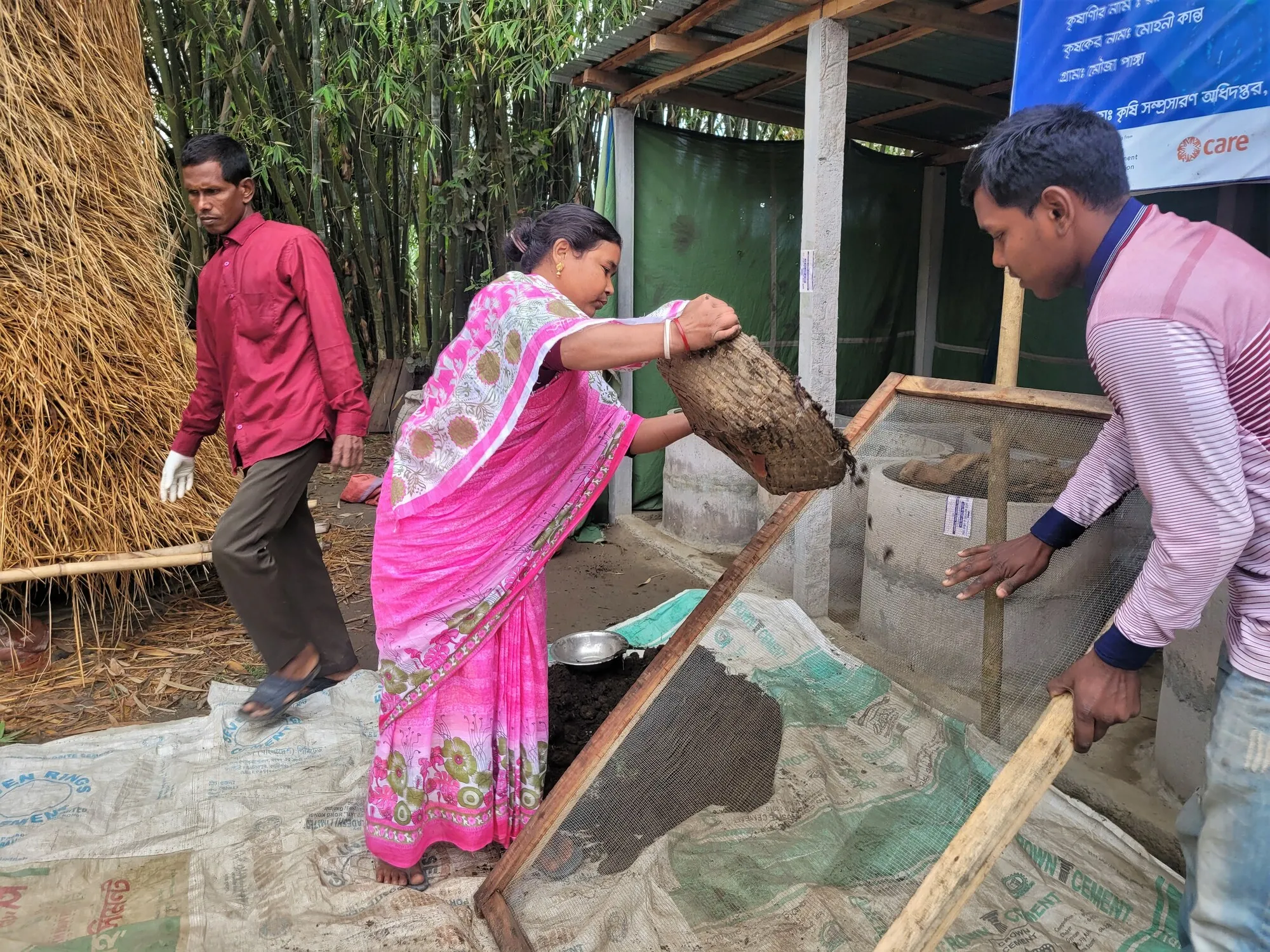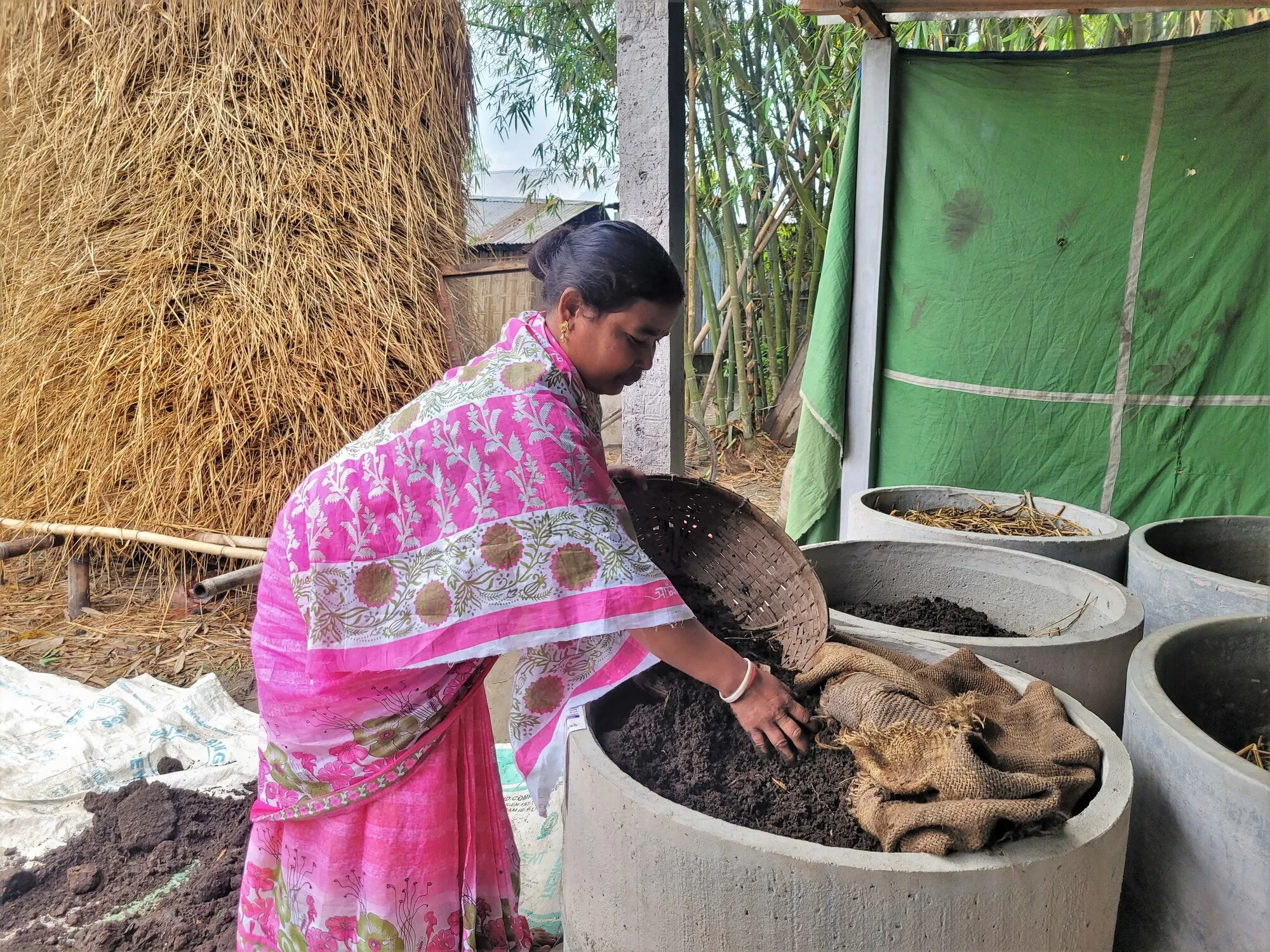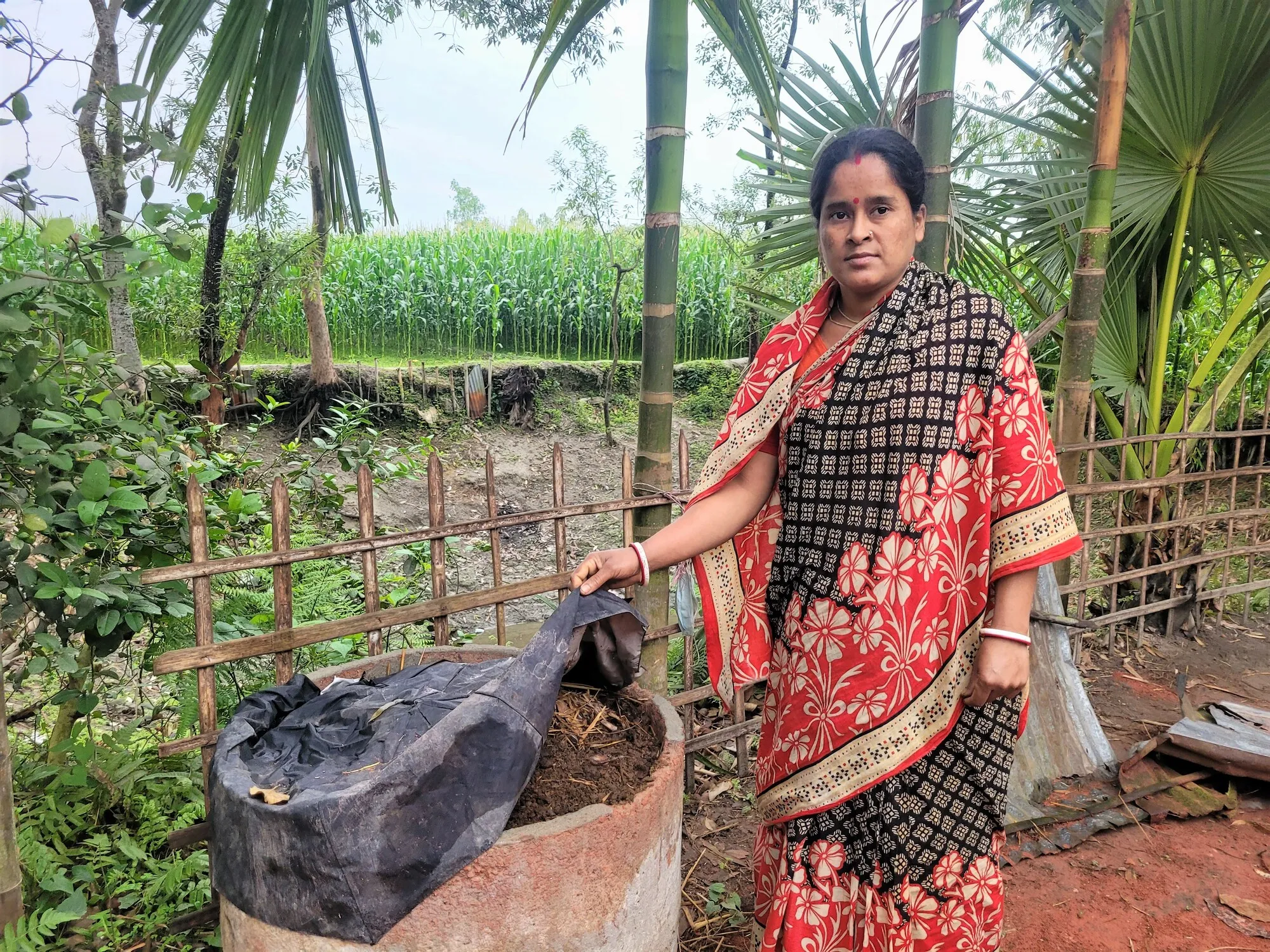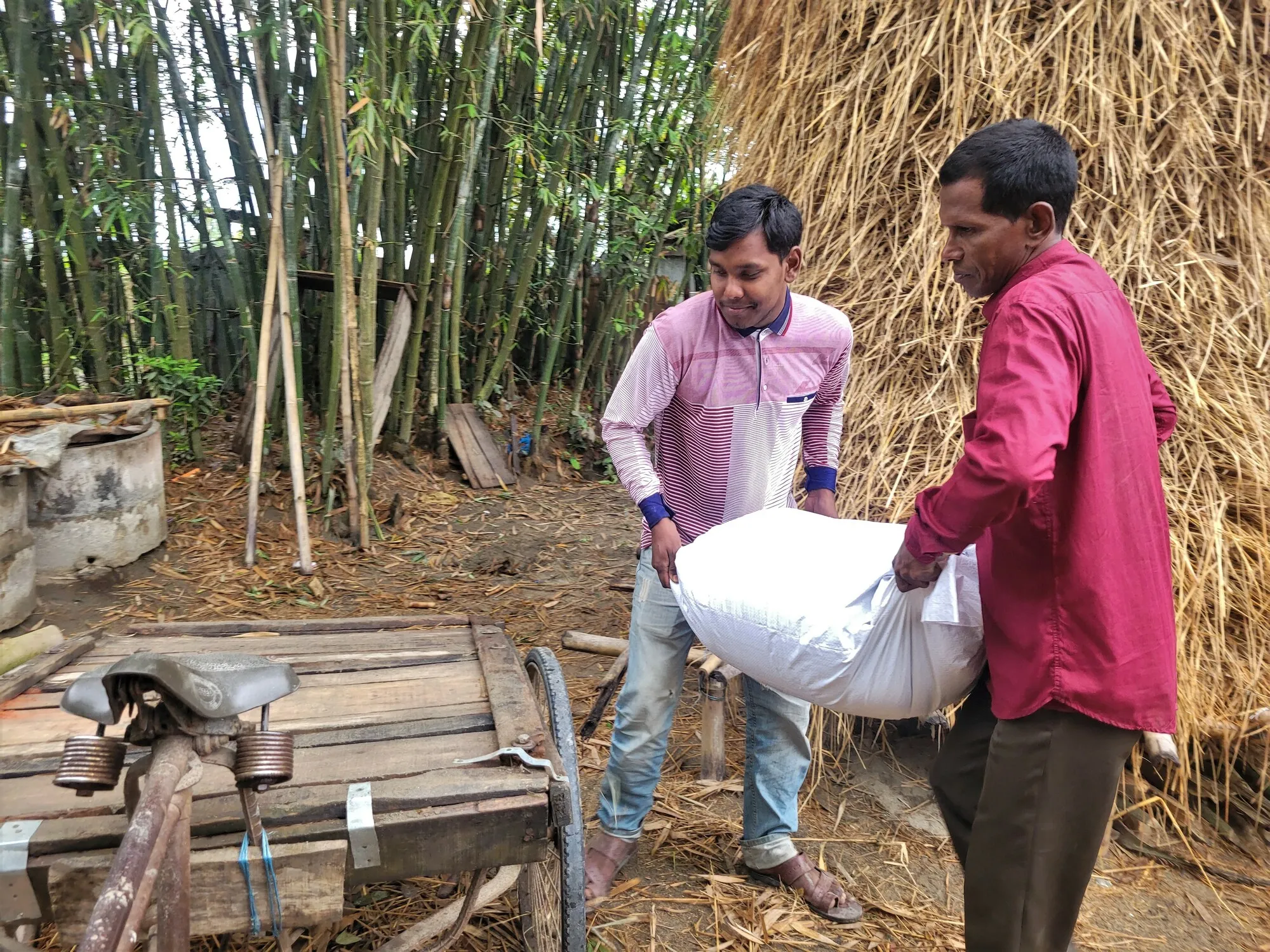“Then come the worms,” says Mohine, a compost entrepreneur in Bangladesh.
“The worms digest the dung, and their castings become fertilizer. The worms also reproduce, and we can sell them alongside the ready fertilizer.”
The dung and fertilizer go in the concrete container where straws keep them warm and moist, and then, after about 15 to 20 days, Mohine’s family packages the fertilizer in white sacks, secures the worms in small plastic buckets, and delivers the final product to customers around the country.
Mohine’s family sells one kilo (2.2 pounds) of this specialized, organic fertilizer for around 10 cents, and one kilo of worms for around $12, which is equivalent to around 1,331 taka in Bangladesh. Every month, they sell an average of 3,600 kilo of fertilizer and 15 kilo of worms.
Starting out
Mohine, 45, and Radhika, 36, embarked on their entrepreneurial journey a few years ago with their two sons, Sonaton and Krusho.
Like any other business, the family faced initial challenges.
“We could sell compost only in our village and produced a quarter of what we are able to produce today,” Mohine says.
They needed help to get where they wanted to go, and this is where CARE’s Joint Action for Nutrition Outcome (JANO) project stepped in and provided the training and guidance on the technical know-how of compost production and marketing to expand their business.
The result was remarkable. In the same way Mohine and Radhika’s fertilizer has helped ensure the local soil has the best conditions to grow the best crops, the JANO program has helped make sure Mohine and Radhika have everything they need for their business to reach across the country.
What is JANO?
JANO is an innovative nutrition project by CARE funded by the European Union (EU) and the Austrian Development Agency. It’s geared towards ending malnutrition in children under five, adolescent girls, and addressing the nutritional needs of pregnant and lactating women. In Bangladesh, 40 million people are food insecure, with 11 million suffering from acute hunger. CARE research has shown over and over again that in these circumstances, women and girls are particularly affected.
In these circumstances, it’s essential to make the most of food production and distribution.
One of the JANO program’s main goals is to help make nutritious food affordable and regularly available for local communities — which means not only helping farmers grow the food but helping JANO-trained, home-based entrepreneurs serve as the last-mile support in delivering it as well.




